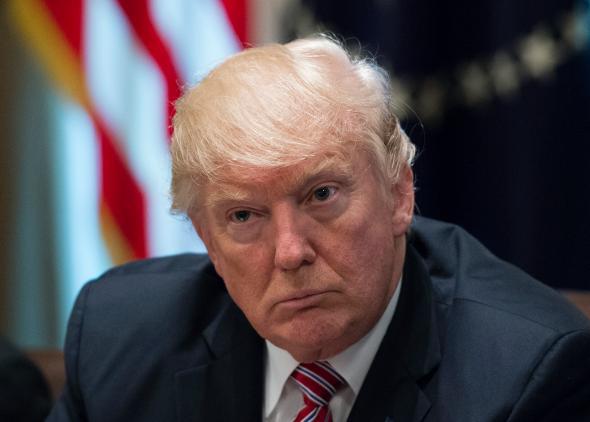Days after the Supreme Court allowed a partial version of President Trump’s signature Muslim ban to stay, the White House issued a new set of visa rules and restrictions limiting American visas to visitors with “close” family ties or business ties from six Muslim-majority countries—Syria, Sudan, Somalia, Libya, Iran, and Yemen. The State Department narrowly defined close family ties to mean: parent, spouse, child, adult son or daughter, son-in-law, daughter-in-law or sibling already in the U.S. Essentially the same family requirement will also apply to refugees trying to enter the country.
“Grandparents, grandchildren, aunts, uncles, nieces, nephews, cousins, brothers-laws and sisters-in-law, fiancées or other extended family members are not considered to be close relationships, according to the guidelines that were issued in a cable sent to all U.S. embassies and consulates late on Wednesday,” according to the Associated Press. “As far as business or professional links are concerned, the State Department said a legitimate relationship must be ‘formal, documented and formed in the ordinary course rather than for the purpose of evading’ the ban.”
The Supreme Court, in lifting lower court injunctions blocking the Trump ban, exempted visa applicants with a “bona fide relationship” to someone in the U.S., but did not elaborate the extent of the relationship necessary. The professional or business exemption is even more vague, but appears to allow workers with American contracts, students, and journalists from the six countries to obtain visas.
Perhaps the most heartbreaking aspect of the new rules will be their impact on green card lottery winners. “Would-be immigrants from the six counties who won a coveted visa in the government’s diversity lottery—a program that randomly awards 50,000 green cards annually to people from countries with low rates of immigration to the United States—will have to prove they have a ‘bona fide relationship’ within the U.S. or are eligible for another waiver or face being banned for at least 90 days,” the AP reports. “That hurdle may be a difficult one for those immigrants to overcome, as many visa lottery winners don’t have relatives in the U.S. or jobs in advance of arriving in the country.”
The new requirements go into effect Thursday, according to a State Department cable sent out to U.S. embassies and consulates worldwide.
